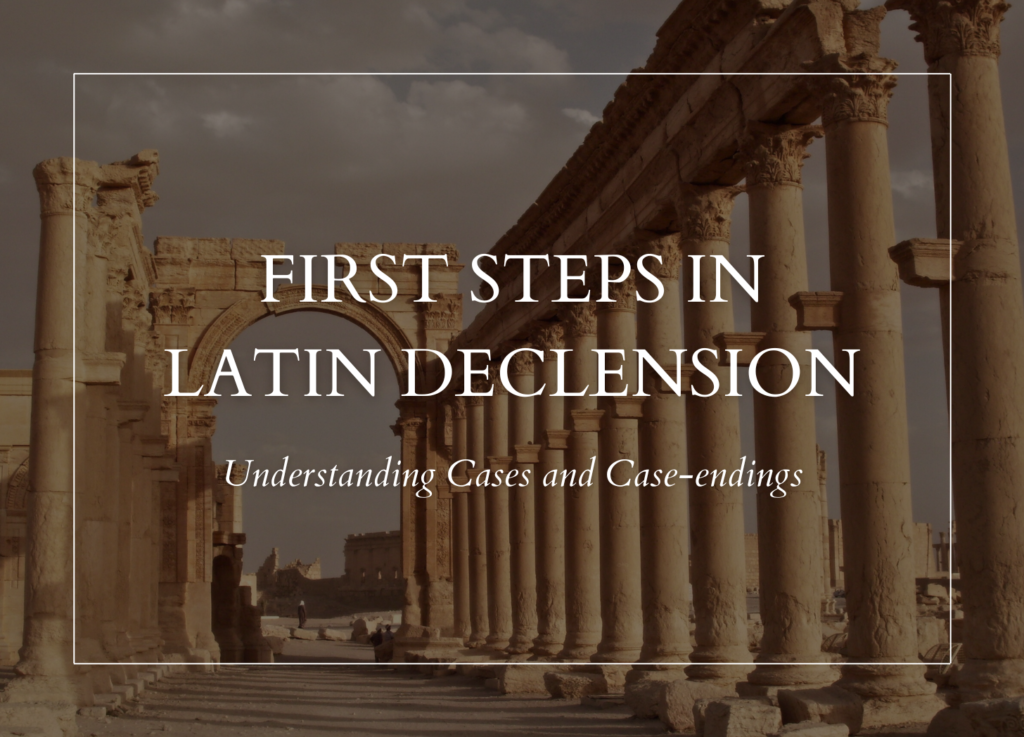First things first. Nouns are the names of things or people. For example: fluvius (river), insula (island), oppidum (town), Marcus, Iulia. In English we say:
(1) Mark hits Julia.
(2) Julia hits Mark.
Note that in these sentences, the nouns Mark and Julia do not change, even though in the first sentence Mark performs the action and Julia receives it, while in the second, their roles are reversed. Only the order has changed.
In Latin, however, this difference in roles is not shown by changing the word order, but by altering the word endings.
(1) Marcus pulsat Iuliam.
(2) Iulia pulsat Marcum.
When Marcus does the action, his name ends in -us. When he suffers the action, it ends in -um. Similarly, when Iulia does the action, her name ends in -a, and when she receives it, it ends in -am.
This distinction between the doer and the receiver of the action is commonly referred to as the subject and the object. In Latin, using more precise terminology, we say that the subject is in the nominative case, while the object is in the accusative case.
• Nominative: Marc-us, Iuli-a
• Accusative: Marc-um, Iuli-am
The endings -us, -um, -a, and -am are more precisely called case-endings because they help us identify the case of the noun. The accusative case appears for the first time in Familia Rōmāna, III. 8: Mārcus Iūliam pulsat (from which I took the example).
In English, only some pronouns have different forms for the nominative and accusative cases.
• Nominative: I, who
• Accusative: me, whom
In addition to the nominative and accusative, Latin has three other cases: genitive, dative, ablative. These cases are expressed in English through prepositions such as of, to, with, by, etc.
• Genitive: Marci, ‘of Mark’
• Dative: Marco, ‘to Mark’
• Ablative: Marco, ‘with Mark’
(Note that in the dative and ablative cases, the case-endings are identical, but the cases themselves are different.)
Changing the case-ending of a noun depending on its role in the sentence is called declining a noun. The system that organizes and categorizes the Latin cases and their corresponding case-endings is known as declension.
Keywords Glossary:
• Noun: A word naming a person, place, thing, or idea.
• Subject: The doer of the action.
• Object: The receiver of the action.
• Nominative: The Latin case used for the subject.
• Accusative: The Latin case used for the object.
• Case-Endings: The ending of a word that indicates its case (i.e., its role) in a sentence.
• Declining: Changing case-endings of nouns.
• Declension: System organizing Latin cases and case-endings.
Related posts:
• Latin For Beginners: Lesson 9

















